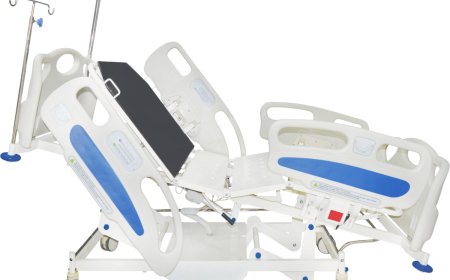Take My Class Online: Developing Critical Thinking Skills
Take, My, Class, Online

Critical thinking is a vital skill that serves as the foundation for academic success, problem-solving, and effective decision-making. Whether you're enrolled in an online class for a degree program or taking an individual course to enhance your knowledge, developing critical thinking skills will help you analyzesomeone take my class online, evaluate arguments, and apply knowledge to real-world situations. However, honing critical thinking skills in an online learning environment can be challenging due to the absence of face-to-face interaction and the need for self-discipline.
This article will explore how to develop and strengthen your critical thinking skills while taking an online class. By focusing on strategies to improve cognitive abilities and incorporating best practices for online learning, students can sharpen their critical thinking skills, which will help them excel academically and in life beyond their studies.
Understanding Critical Thinking
Before diving into how to develop critical thinking skills, its important to understand what critical thinking is and why its essential. Critical thinking involves the ability to:
-
Analyze: Break down complex problems or arguments into smaller components to understand the structure and underlying assumptions.
-
Evaluate: Assess the credibility, relevance, and accuracy of information and sources.
-
Synthesize: Combine different pieces of information to create new ideas, solutions, or perspectives.
-
Infer: Draw logical conclusions based on available evidence and reasoning.
-
Reflect: Consider ones own thinking process and biases, allowing for better self-awareness and more objective reasoning.
Critical thinking enables students to become active learners rather than passive recipients of information. It empowers them to make informed decisions, engage in thoughtful discussions, and solve problems creatively. While critical thinking is a fundamental skill across all academic disciplines, it is particularly essential for online learners who must navigate complex course materials independently.
The Challenges of Developing Critical Thinking in Online Education
While critical thinking is crucial in both traditional and online learning environments, online students may face unique challenges when it comes to developing these skills. Some of the most common challenges include:
-
Limited Interaction with Instructors and Peers: In an online class, students dont have the same face-to-face opportunities for discussion and clarification. This can make it harder to engage in meaningful debates or receive feedback on their ideas.
-
Lack of Immediate Feedback: In traditional classes, students often receive instant feedback on their reasoning and answers, which helps them refine their thinking. In online learning, feedback may be delayed, making it more difficult to assess ones progress in real-time.
-
Self-Motivation and Discipline: Online learning requires a higher degree of self-regulation, which can be particularly challenging for students who are still developing their critical thinking skills. Without the structure of a physical classroom, students may struggle with staying on task and engaging deeply with the material.
-
Overreliance on Surface-Level Learning: Online learners may be tempted to skim through materials quickly or rely on easily accessible resources, bypassing deeper engagement with the subject matter. This surface-level learning approach hampers the development of critical thinking skills.
Strategies to Develop Critical Thinking Skills in Online Classes
Despite these challenges, there are numerous strategies that online students can use to cultivate and strengthen their critical thinking skills. By employing these strategies, students can deepen their understanding of the course material, engage in more meaningful discussions, and develop the cognitive tools necessary for academic and professional success.
1. Engage Actively with Course Materials
One of the most effective ways to develop critical thinking skills in an online class is to engage actively with the course materials. Instead of passively reading textbooks or watching lectures, adopt a more interactive approach to learning.
-
Take Notes: Active note-taking helps organize information, highlight key concepts, and create a personalized understanding of the material. Writing down important points and summarizing them in your own words can also enhance retention and understanding.
-
Ask Questions: When studying course content, don't hesitate to ask nurs fpx 4035 assessment 2. What is the main argument or purpose of the material? Are there any contradictions or gaps in the information presented? Challenge yourself to think critically about the content youre learning.
-
Summarize and Reflect: After completing each module or lesson, take time to summarize the key points in your own words. Reflect on how this new information fits with what you already know. By synthesizing the material and making connections to other concepts, youll strengthen your ability to think critically.
2. Participate in Online Discussions
Online discussions are an excellent opportunity to develop critical thinking skills, as they allow you to engage with your peers and analyze different viewpoints. While it may be tempting to simply post your initial thoughts, diving deeper into the discussion can help you refine your thinking and understand diverse perspectives.
-
Read All Posts: Before responding to a discussion prompt, carefully read all the posts made by your peers. This helps you understand the range of opinions and reasoning within the class.
-
Analyze Arguments: When reading others posts, evaluate the strength of their arguments. Do they provide solid evidence to back up their claims? Are their assumptions clear and well-supported? Respond with thoughtful analysis, asking questions or pointing out areas that may require further exploration.
-
Offer Constructive Feedback: When engaging with classmates ideas, provide feedback that challenges them to think critically. For example, ask them to elaborate on their reasoning, offer counterarguments, or suggest alternative perspectives.
-
Be Open to Critique: In addition to providing constructive feedback, be open to receiving it. When your classmates challenge your ideas, consider their arguments carefully and be willing to adjust your thinking if new evidence or perspectives arise.
3. Seek Out Multiple Sources of Information
Critical thinking involves evaluating information from different perspectives and sources. In online education, its easy to rely solely on the course materials provided, but its important to broaden your research by exploring additional resources.
-
Use Scholarly Databases: Make use of academic databases like Google Scholar, JSTOR, or your universitys library to find scholarly articles, studies, and papers that supplement your learning. Examining different sources will help you build a well-rounded understanding of the topic.
-
Evaluate the Credibility of Sources: Not all sources of information are equally reliable. Practice evaluating the credibility of the sources you encounter. Consider the authors qualifications, the publications reputation, and the evidence presented. Reliable sources contribute to stronger, evidence-based arguments.
-
Compare Different Viewpoints: Look for contrasting perspectives or alternative solutions to the problems or questions you're studying. By comparing different viewpoints, youll learn to think more critically and understand the complexity of various issues.
4. Engage in Problem-Based Learning
Problem-based learning (PBL) is an approach that encourages students to engage with real-world nurs fpx 4035 assessment 4, think critically about possible solutions, and apply knowledge to practical situations. While PBL is often associated with face-to-face education, it can also be implemented effectively in online courses.
-
Work on Case Studies: Many online courses incorporate case studies that require students to analyze complex problems and propose solutions. These case studies provide an excellent opportunity to apply critical thinking and demonstrate your understanding of the material.
-
Simulate Real-World Scenarios: If your course doesn't include case studies or practical exercises, try to create your own real-world scenarios related to the subject matter. For example, if youre studying economics, simulate a business decision-making scenario and evaluate potential strategies.
-
Collaborate with Peers: Online group projects are an excellent opportunity to develop problem-solving skills. Work with your classmates to brainstorm solutions, consider different perspectives, and critique each other's ideas. Collaborative problem-solving fosters deeper critical thinking.
5. Practice Reflection and Metacognition
Reflection is a key component of critical thinking. By thinking about your own thinking process (known as metacognition), you can identify biases, assumptions, and gaps in your reasoning. Reflective practices help you become more aware of your cognitive patterns and develop more effective strategies for thinking critically.
-
Keep a Learning Journal: Maintain a journal where you reflect on your learning process, challenges youve faced, and insights gained. Regularly reviewing your journal can help you track your progress and identify areas where you can improve your critical thinking.
-
Evaluate Your Arguments: After completing assignments or discussions, review your arguments critically. Did you provide sufficient evidence to support your claims? Were there alternative viewpoints you hadnt considered? Reflecting on your own reasoning helps you refine your critical thinking abilities.
-
Seek Feedback: In addition to self-reflection, seek feedback from instructors or peers. Ask them to evaluate your reasoning and suggest ways to strengthen your critical thinking. Constructive feedback can illuminate blind spots in your thinking and help you improve.
6. Practice Writing and Argumentation
Writing is one of the most powerful tools for developing critical thinking. Whether youre writing essays, discussion posts, or research papers, the process of organizing your thoughts and presenting a coherent argument forces you to think deeply and critically.
-
Formulate a Strong Thesis: Every piece of writing should have a clear thesis or argument. Developing a strong thesis requires careful thought and analysis, as you must clearly define your position and back it up with evidence.
-
Structure Your Argument: Organize your writing logically, presenting your evidence and reasoning in a way that builds a compelling case. Make sure to consider counterarguments and address them in your writing to strengthen your position.
-
Revise and Edit: Critical thinking doesnt end after youve written your first draft. Revisit your work with a critical eye, looking for weaknesses in your argument or areas that need clarification. Editing and revising your writing enhances your ability to think critically about complex ideas.
Conclusion
Developing critical thinking skills while taking online classes is both challenging and rewarding. By adopting a proactive and reflective approach to learning, engaging with diverse nurs fpx 4045 assessment 1, participating in discussions, and practicing problem-solving, online students can hone their critical thinking abilities and enhance their academic performance. With time, persistence, and the right strategies, critical thinking will become an indispensable skill that students can apply not only to their coursework but to all aspects of their personal and professional lives.







































